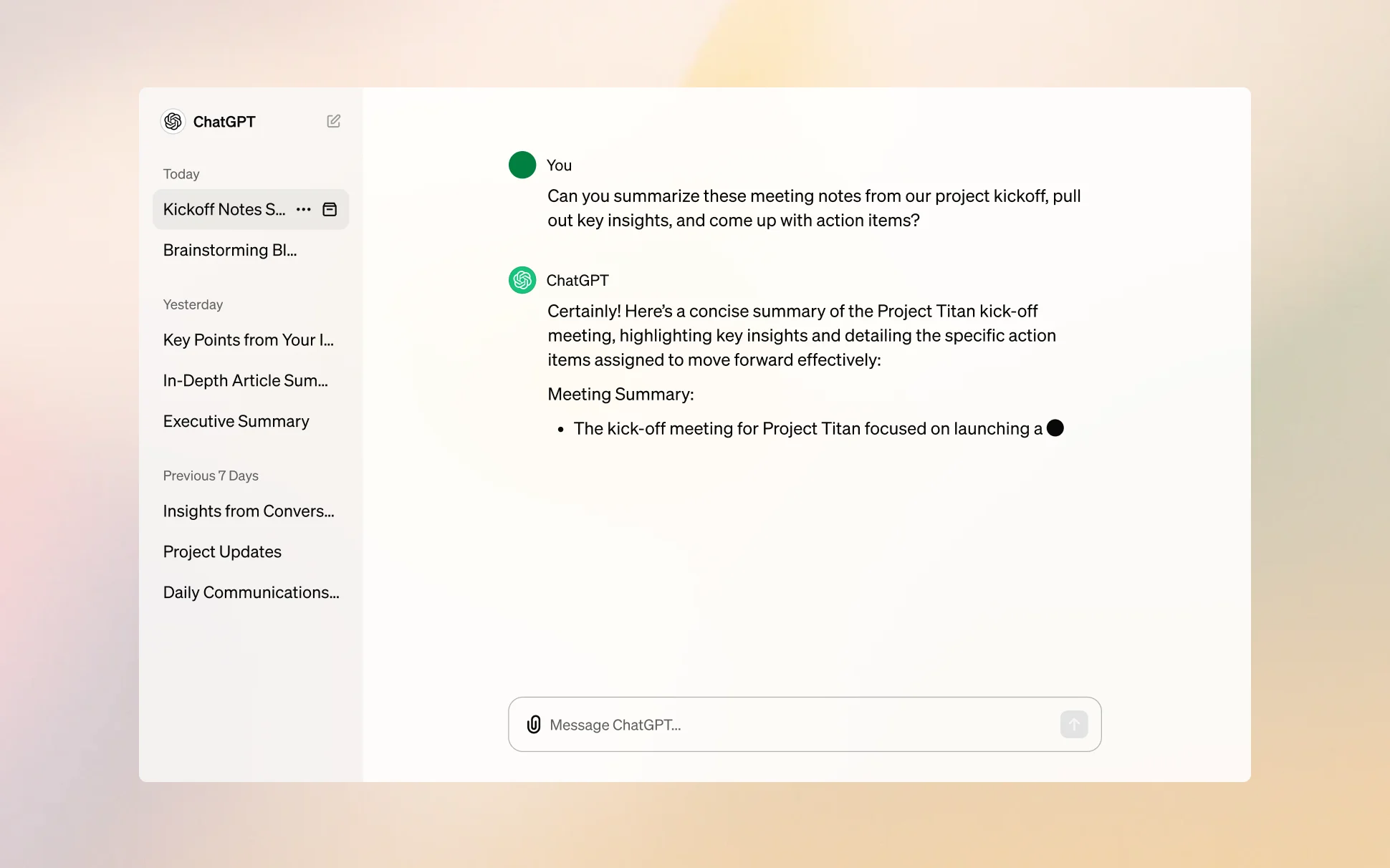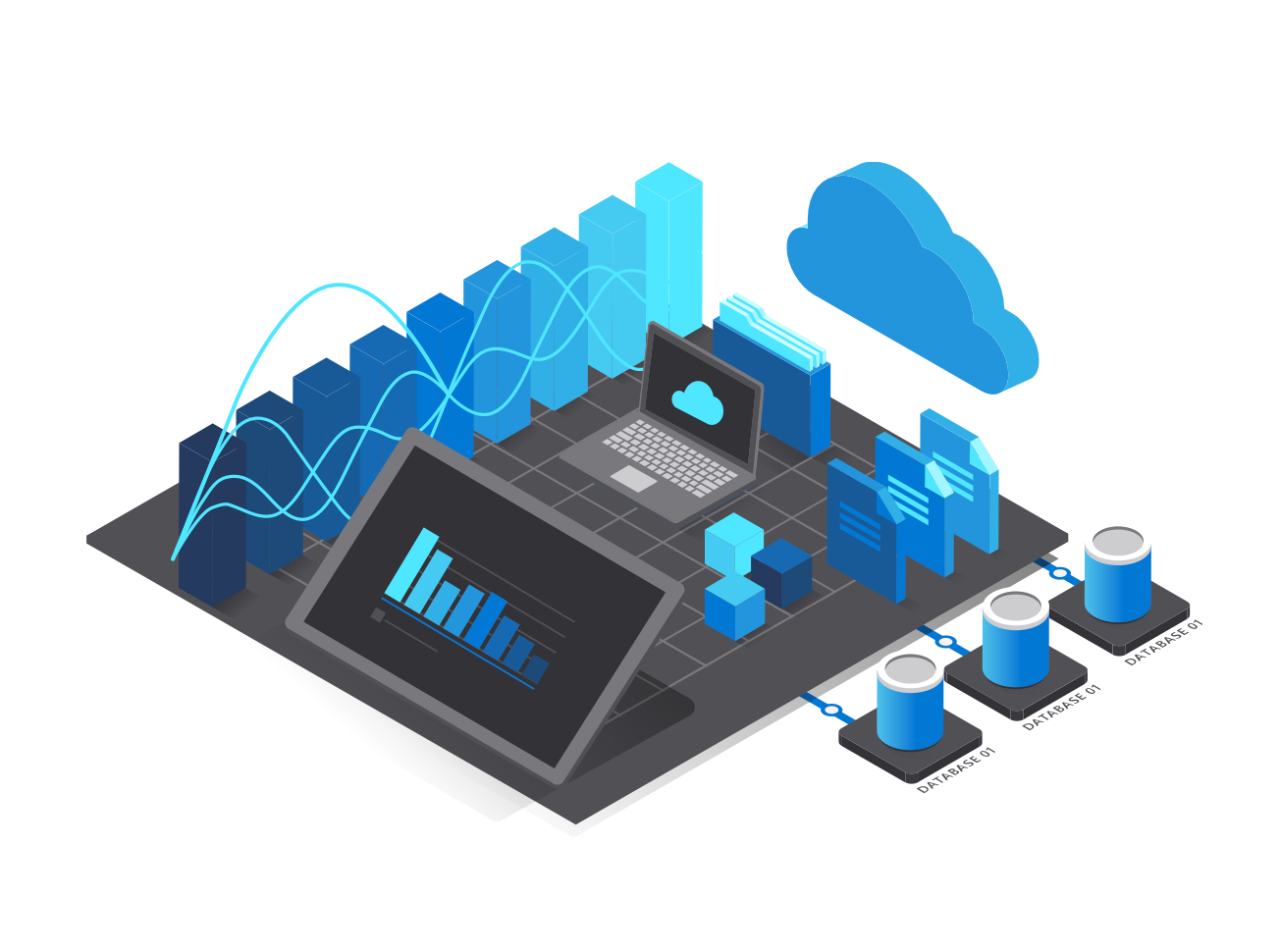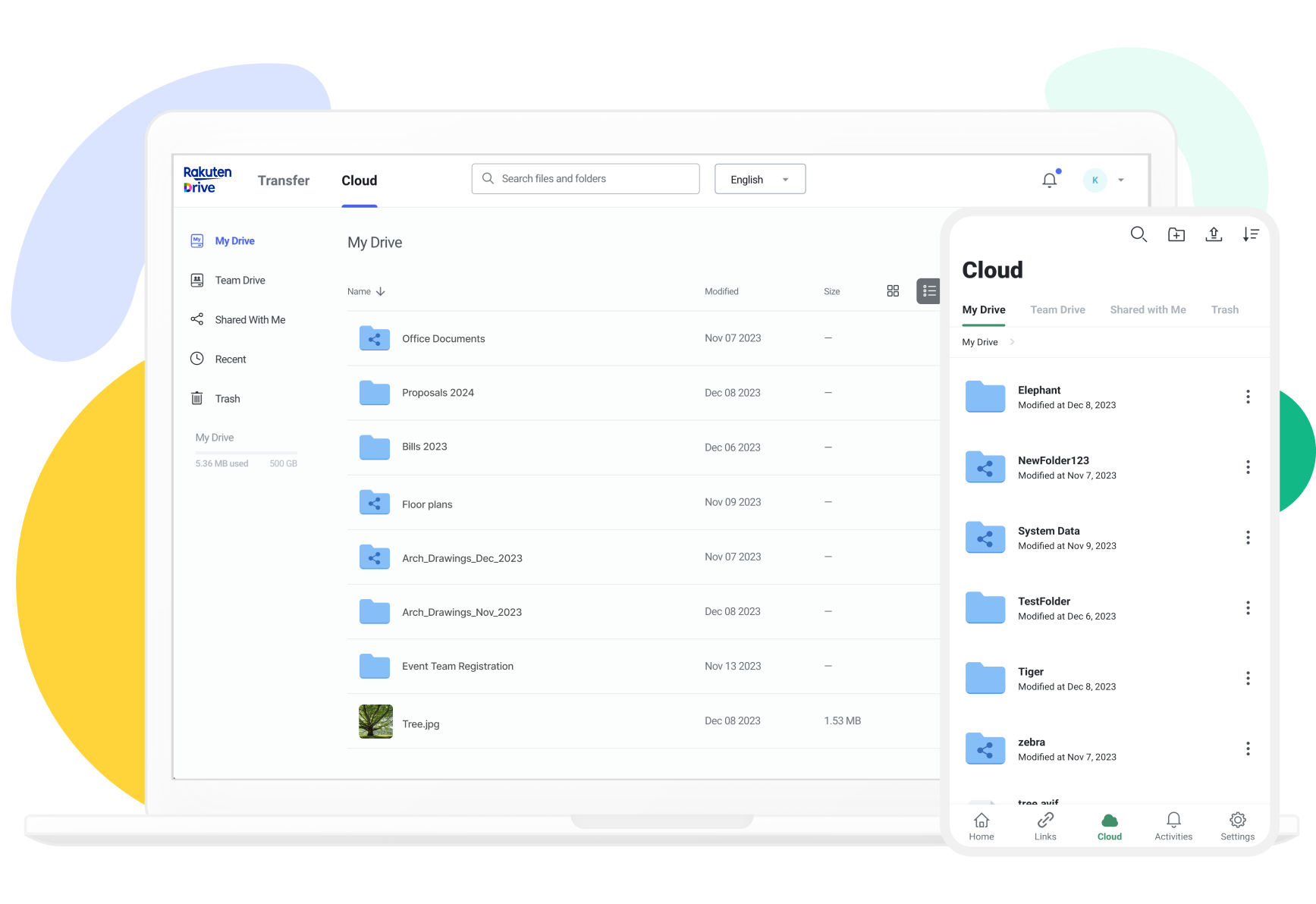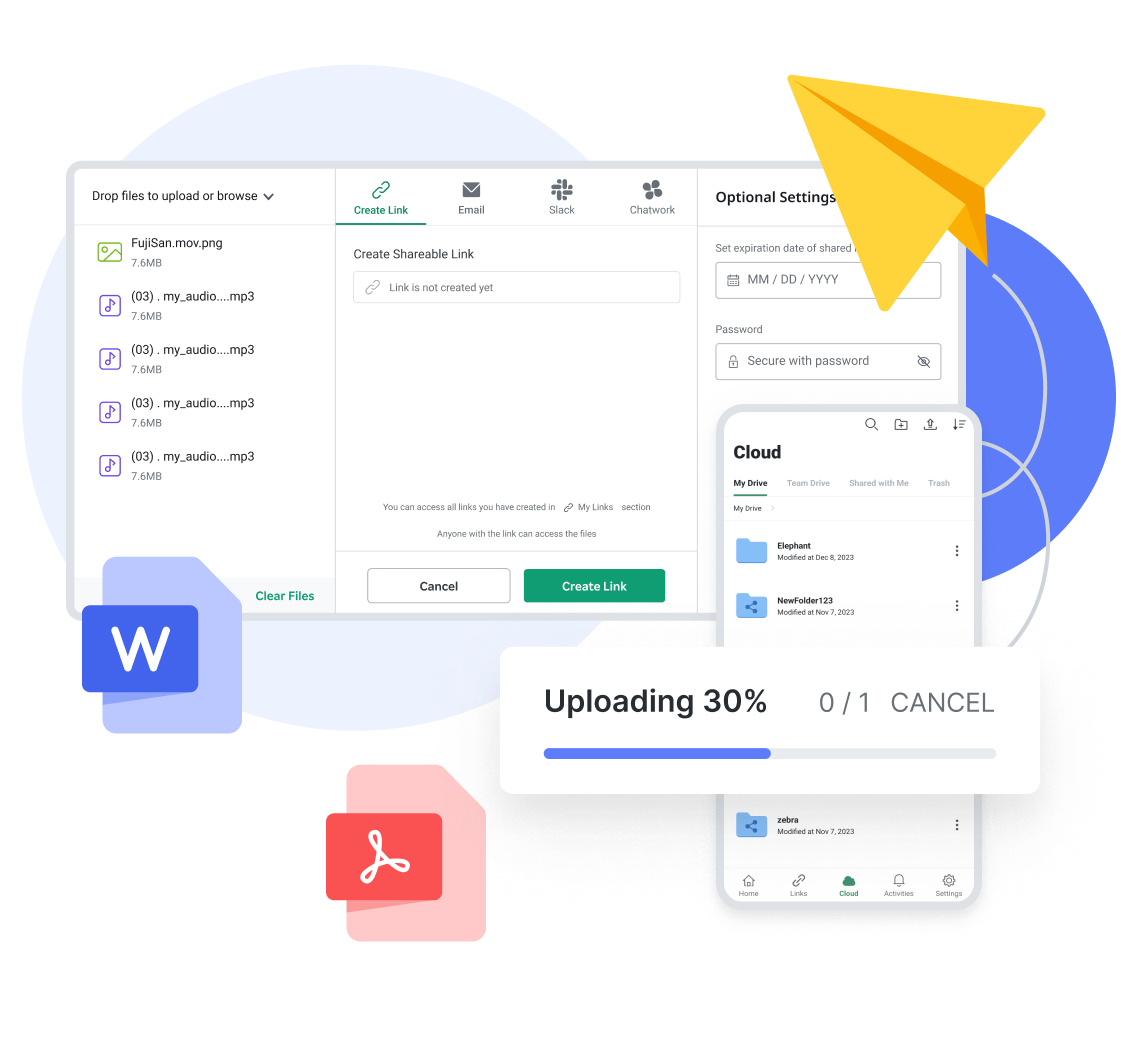What is Generative AI? Why Cloud Computing is Essential for Generative AI Services
In recent years, advancements in Artificial Intelligence (AI) technology have rapidly transformed many aspects of the business environment. Among the most prominent of these innovations is 'Generative AI.' Generative AI refers to technology trained on big data to create new content such as text, images, and music. Unlike traditional AI that merely analyzes and predicts data, generative AI generates entirely new data. Today, we'll explore what Generative AI is and why cloud computing is essential for services utilizing Generative AI.
Source: Freepik
Table of Contents
- What is Cloud Computing?
- What is Generative AI?
- 4 Reasons Why Cloud Computing is Essential for Generative AI
① Handling Vast Data, AI Models, and Application Usability
② Cost Savings
③ Data Management and Analysis Through Cloud-Native Approaches
④ Parameter Storage and Management - Handle Vast Data with Rakuten Drive
1. What is Cloud Computing?

Source: Freepik
Before diving into what generative AI is, let’s understand cloud computing. Cloud computing refers to delivering computing services such as servers, networking, storage, and software over the internet. The main advantage is that users can access these resources without managing them directly. Instead, they can use the computing resources they need on-demand. Let's explore the three main types of computing services: SaaS, IaaS, and PaaS.
① SaaS (Software as a Service)
SaaS stands for 'Software as a Service'. It refers to software delivered as a service to users, typically through applications. The service provider handles software updates, maintenance, and management, reducing the user's workload. Users pay a subscription fee and can use the service as needed. Examples of SaaS include Microsoft Office365, Google Docs, and Rakuten Drive.
📍 What is SaaS? A Simple Guide to SaaS Cloud Services!
② IaaS (Infrastructure as a Service)
IaaS stands for 'Infrastructure as a Service'. It refers to providing IT infrastructure such as servers, storage, and networks as a service. Users do not need to build their own infrastructure but can use the provider's resources and manage them to run operating systems, applications, and data. The flexibility to scale computing resources as needed is a key benefit. Examples of IaaS include AWS (Amazon Web Services) and Microsoft Azure.
③ PaaS (Platform as a Service)
PaaS stands for 'Platform as a Service'. It provides a platform that includes both hardware and software resources necessary for developing, managing, and deploying applications. Users can focus on app development and deployment without worrying about managing underlying infrastructure or platform resources. Examples of PaaS include AWS Elastic Beanstalk and IBM Cloud.
We've covered the three main types of cloud services—SaaS, IaaS, and PaaS—and their characteristics. How can cloud computing be utilized in the context of generative AI?
2. What is Generative AI?

Source: ChatGPT
Generative AI is a branch of artificial intelligence that creates new content by learning from existing data. It operates based on deep learning algorithms and big data, generating various types of content such as text, images, music, and videos. Companies specializing in generative AI are offering a wide range of services across different industries, enhancing business efficiency and creating new value.
- Global Companies in Generative AI Services
Microsoft provides a tool called Copilot GPT-5 that assists programmers with code writing and debugging. Google, through Bard and Gemini, offers innovative services by combining natural language processing with generative AI technology. Meanwhile, Meta utilizes AI services in various ways, such as improving user experiences with LLaMA 2 and Meta AI and offering diverse content creation solutions.
- Advancing as a Generative AI Company
Companies leveraging generative AI technology are automating workflows to enhance efficiency. For instance, marketing departments use generative AI to easily create product descriptions and ad copy, while customer service teams handle inquiries with AI chatbots. Generative AI companies are using these technologies to provide better customer experiences and reduce costs. As such, generative AI has become an essential tool for maintaining competitive advantage across various industries.
3. 4 Reasons Why Cloud Computing is Essential for Generative AI

Source: Microsoft Azure
Generative AI requires vast amounts of data and complex computations. The quality of generative AI improves with the volume of data available. To leverage generative AI exclusively, companies must protect their internal data. Cloud computing, which allows for secure storage and management of data over the internet, is crucial for this purpose. It enables users to access necessary computing resources, such as servers and databases, without managing physical hardware directly. So, why is cloud computing so important for generative AI?
① Handling Vast Data, AI Models, and Application Usability
Generative AI requires large-scale datasets, making cloud computing essential for efficient data processing. The cloud provides the infrastructure needed to store vast amounts of data, train AI models, and run applications. It supports software technologies that help users access and utilize these resources conveniently.
② Cost Savings
By using cloud computing, companies can save on the expenses associated with building and managing their own infrastructure. Cloud services offer the flexibility to scale storage capacity up or down based on demand, and you only pay for what you use.
In contrast, purchasing and installing servers and storage devices to meet data needs can be extremely costly and time-consuming. Misestimating demand can result in significant losses. Adopting cloud storage allows companies to significantly reduce initial investment costs and manage operational expenses more efficiently.
③ Data Management and Analysis Through Cloud-Native Approaches
Cloud-native refers to designing and operating applications specifically for cloud environments. This approach maximizes the cloud's automation features, scalability, and flexibility, ensuring that applications run smoothly on cloud infrastructure. Data management and analysis are central to this approach.
Generative AI, which processes large volumes of data and performs complex computations, can be optimized using cloud-native technologies. These technologies enable efficient data storage, processing, and analysis. As a result, large-scale data can be reorganized, and the efficiency and performance of AI models can be significantly enhanced.
④ Parameter Storage and Management
Generative AI models have numerous parameters, and as the demand for generative AI increases, there is a need for data storage that can handle and manage these parameters effectively. Cloud storage provides an environment well-suited for storing and managing big data, with the ability to monitor server demand in real-time. Cloud storage effectively offers virtually unlimited capacity, allowing for efficient storage and management of large volumes of data.
📍Cloud for business vs NAS: Which data storage solution suits our company?
4. Handle Vast Data with Rakuten Drive!

To store and manage the large volume of parameters and big data required for operating generative AI models, implementing a cloud storage solution is essential. With Rakuten Drive's cloud storage, you can easily scale storage capacity up or down according to demand and choose cost plans that fit your business size, helping you save on costs!
📍Four Ways to Determine the Storage Capacity Needed for the Company

For businesses using generative AI internally or exclusively, leveraging internal data is crucial. To effectively utilize valuable internal data while ensuring its secure storage, a server with robust security is necessary. Rakuten Drive protects your data with servers located around the world and strong security solutions, so you can focus on your business with peace of mind.
👉 Check Out Rakuten Drive Case Studies

Rakuten Drive makes it easy to share and store large files. You can transfer up to 100GB of large files at once without needing to split or compress them. Additionally, Rakuten Drive offers file transfer speeds up to 4 times faster than other drives, helping you save precious work time when uploading or downloading files.
👉Learn More About Rakuten Drive
Generative AI is a crucial technology revolutionizing our daily lives and business environments. We’ve explored what generative AI is and why cloud computing is essential for it. Why not consider adopting Rakuten Drive, a SaaS service, to respond flexibly and swiftly to the rapidly changing business landscape?성
Optimized Cloud Storage for Business 👉 Sign Up for a Free Trial of Business Plus
